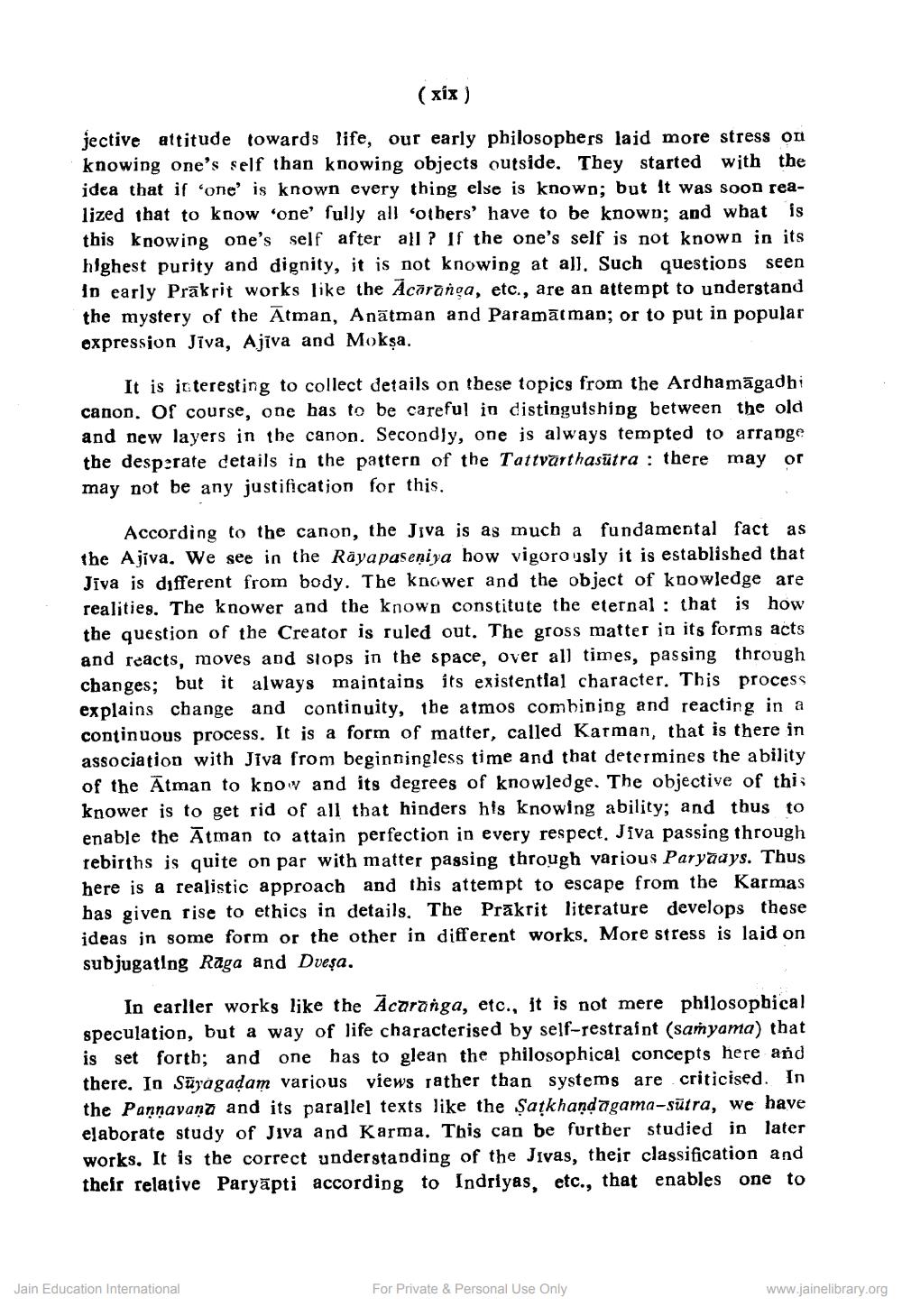________________
(xix )
jective attitude towards life, our early philosophers laid more stress on knowing one's self than knowing objects outside. They started with the idea that if 'one' is known every thing else is known; but It was soon realized that to kaow 'one' fully all 'others' have to be known; and what is this knowing one's self after all ? If the one's self is not known in its highest purity and dignity, it is not knowing at all. Such questions seen in early Prakrit works like the Acõranga, etc., are an attempt to understand the mystery of the Atman, Anātman and Paramātman; or to put in popular expression Jiva, Ajiva and Moksa.
It is interesting to collect details on these topics from the Ardhamāgadhi canon. Of course, one has to be careful in distinguishing between the old and new layers in the canon. Secondly, one is always tempted to arrange the desperate details in the pattern of the Tattvarthasūtra : there mayor may not be any justification for this.
According to the canon, the Jiva is as much a fundamental fact as the Ajiva. We see in the Raya paseniya how vigorously it is established that Jiva is different from body. The knower and the object of knowledge are realities. The knower and the known constitute the eternal : that is how the question of the Creator is ruled out. The gross matter in its forms acts and reacts, moves and siops in the space, over all times, passing through changes; but it always maintains its existential character. This process explains change and continuity, the atmos combining and reacting in a continuous process. It is a form of matter, called Karman, that is there in association with Jiva from beginningless time and that determines the ability of the Ātman to know and its degrees of knowledge. The objective of this knower is to get rid of all that hinders his knowing ability; and thus to enable the Ātman to attain perfection in every respect, Jiva passing through rebirths is quite on par with matter passing through various Paryāays. Thus here is a realistic approach and this attempt to escape from the Karmas has given rise to ethics in details, The Prākrit literature develops these ideas in some form or the other in different works. More stress is laid on subjugating Raga and Dveșa.
In earlier works like the Acaranga, etc., it is not mere philosophical speculation, but a way of life characterised by self-restraint (saṁyama) that is set forth; and one has to glean the philosophical concepts here and there. In Süyagadam various views father than systems are criticised. In the Pannavana and its parallel texts like the Șațkhandagama-sutra, we have elaborate study of Jiva and Karma. This can be further studied in later works. It is the correct understanding of the Jivas, their classification and their relative Paryāpti according to Indriyas, etc., that enables one to
Jain Education International
For Private & Personal Use Only
www.jainelibrary.org




